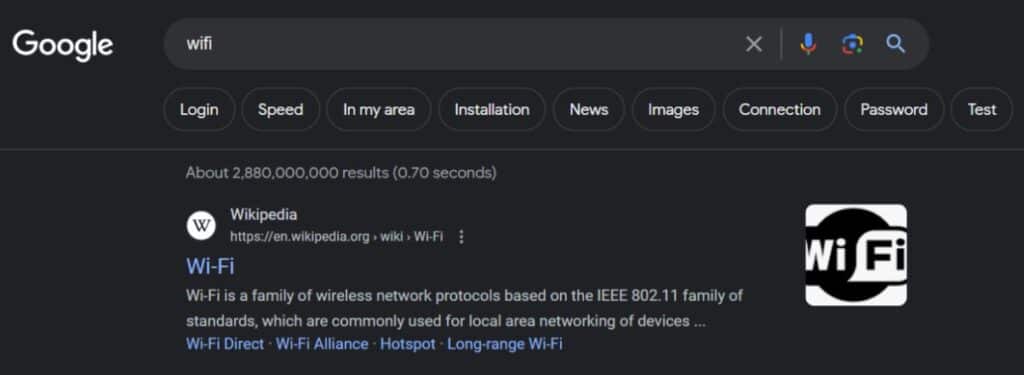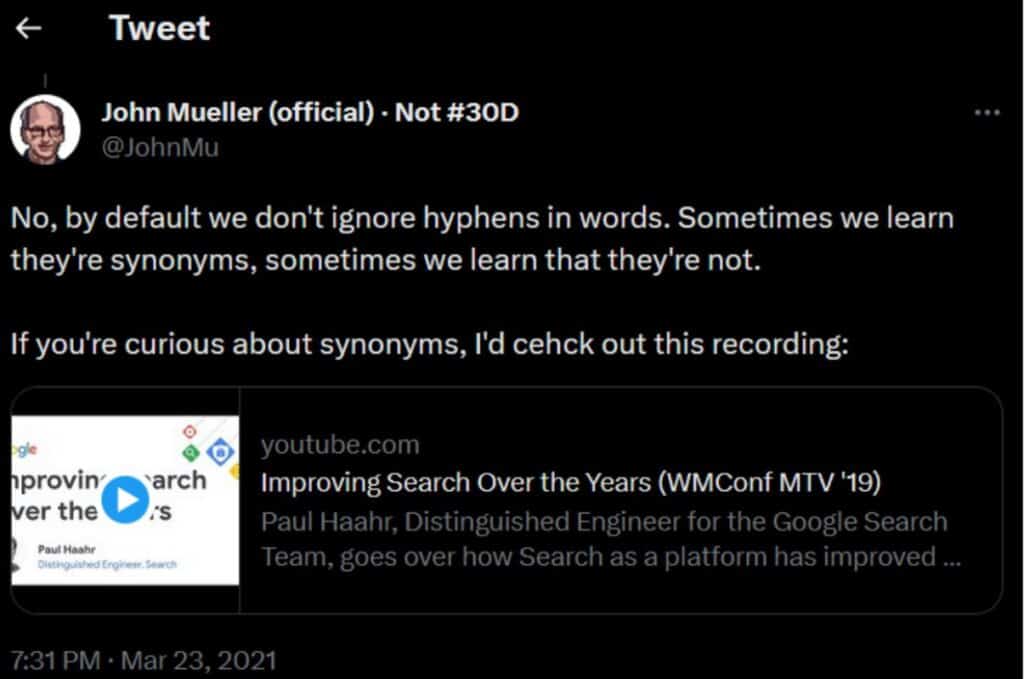Hyphens affect SEO, specifically in URL structuring. Google’s official webmaster guidelines recommend using hyphens to separate words in a URL. The guidelines also state hyphens are preferred over underscores. Hyphens in keywords may also return different search results, as words can have completely different meanings and search volume depending on the usage of the hyphen.
For example, “reform” and “re-form” show completely different top 3 search results, indicating their different meanings.


They also have vastly different search volume, according to SEMrush data:

The words “WiFi” and “Wi-Fi”, on the other hand, are synonymous. However, on SERPs, the first result for “wifi” returns the Wikipedia article on the network protocol. The suggested search modifiers most regard the wifi connection: login, speed, connection, password…

The SERP “wi-fi” with the hyphen returns the Wi-Fi Alliance as the first result, a non-profit organization that owns the Wi-Fi trademark. The SERP also features a knowledge panel on the right-hand side. Because the WiFi Alliance offers a trademark certification for hardware and software compliant with their standards for the Wi-Fi network, the suggested modifiers now also include things like apps, products, shopping…

The volume and search trend data are again difficult and distinct in keyword research tools:

When in doubt whether a hyphenated or non-hyphenated keyword carries a different meaning in SEO, just look up both versions on the search engine and observe whether the results are different or not.
If you’re curious to learn more about how Google itself handles synonyms, we suggest this resource from John Muller:

Contact Fire&Spark for a free strategy consultation on your keyword targeting approach.